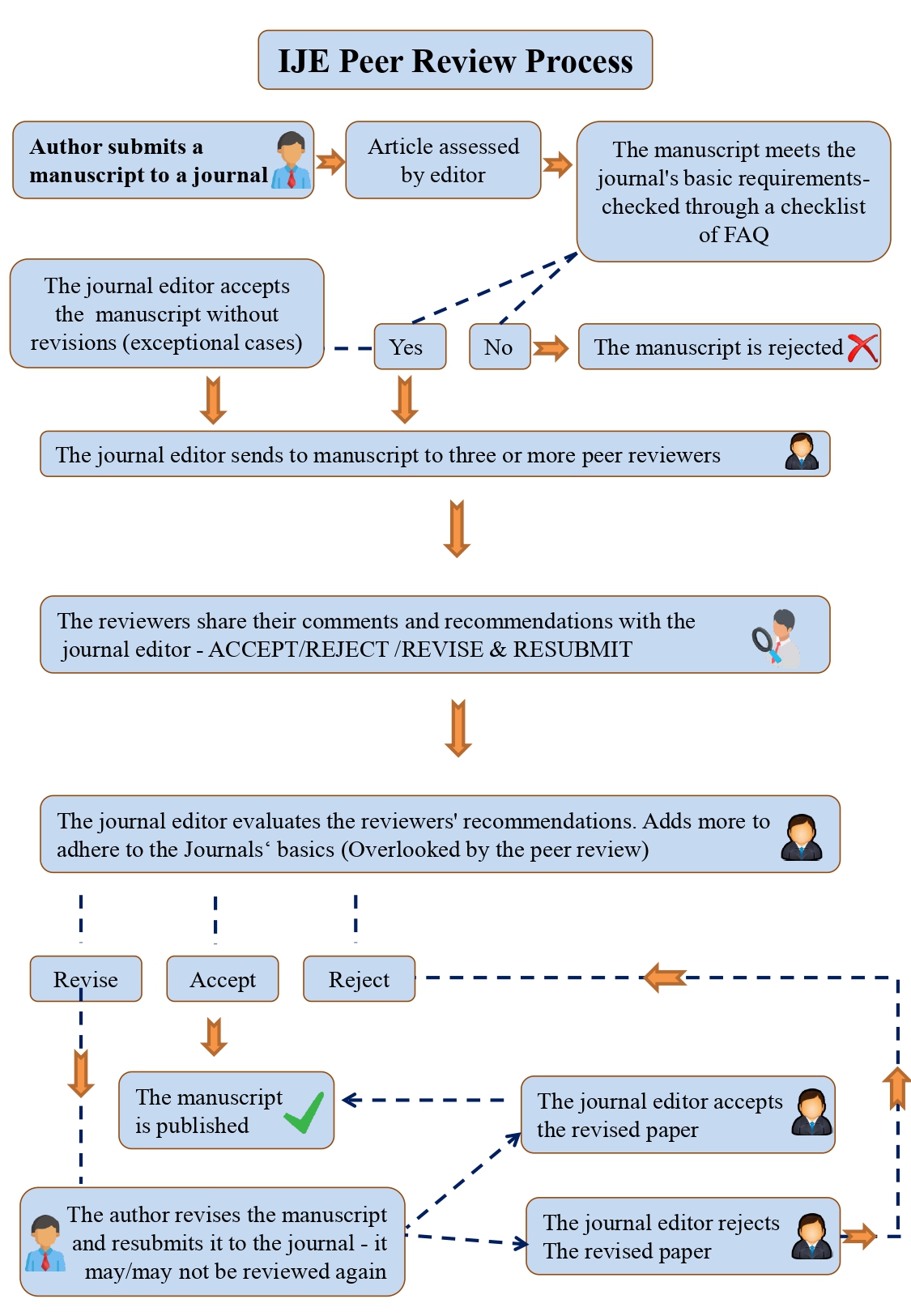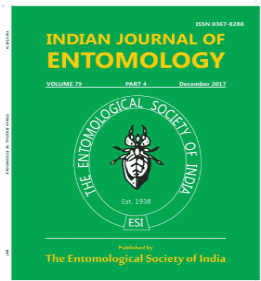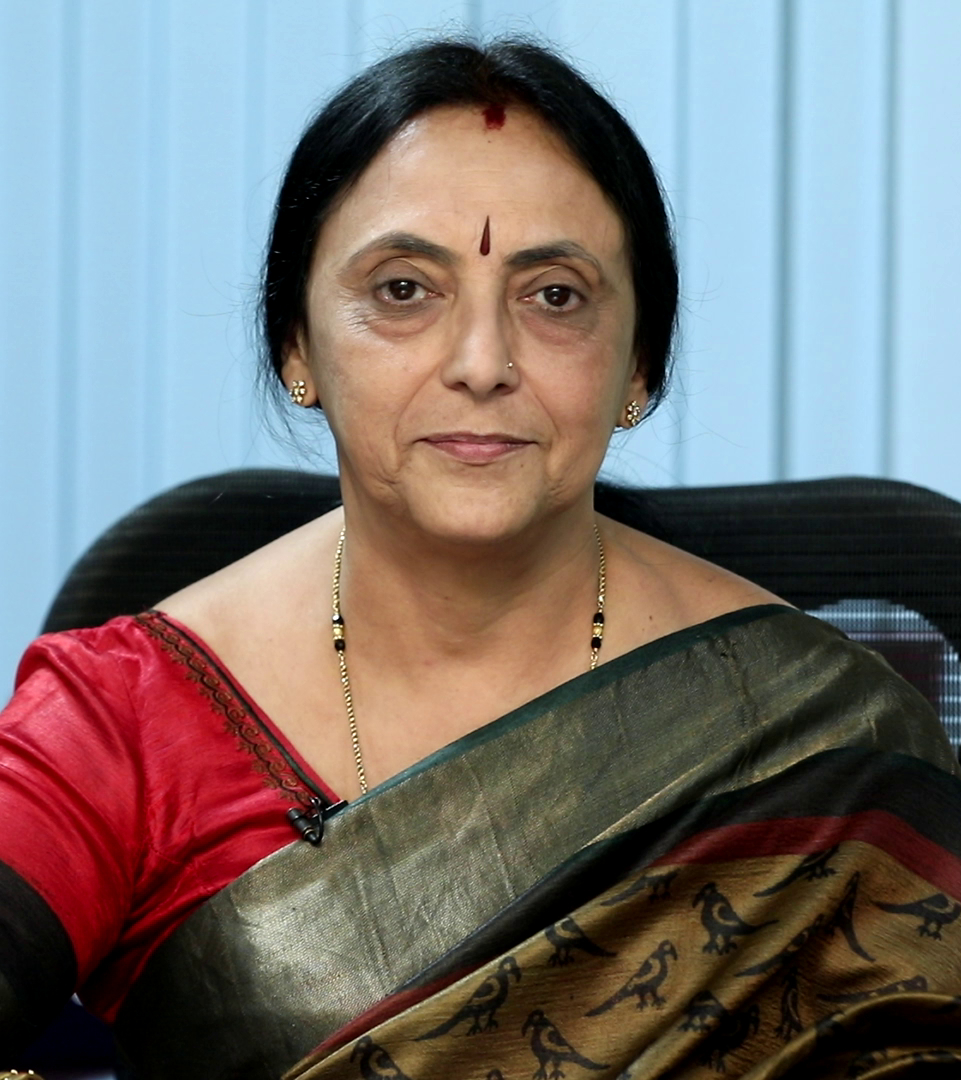Publication Ethics And Malpractice
INDIAN JOURNAL OF ENTOMOLOGY (IJE) PUBLICATION ETHICS AND MALPRACTICE STATEMENT
The Indian Journal of Entomology (IJE) is committed to upholding the highest standards of publication ethics and preventing any form of malpractice in the scholarly publishing process. One of the priorities of the editorial team is to publish quality papers. The journal adheres to the guidelines and principles established by the Committee on Publication Ethics (COPE) and is dedicated to promoting integrity, transparency, and accountability in all aspects of its operations. For this purpose, those who are involved in IJE from authors, peer reviewers and member of editorial board are expected to fully adhere to our policy regarding publication ethics and malpractice. Anyone who believes that research published in the IJE is not in line with these principles should raise their concerns with the Chief Editor at email- entosocindia@gmail.com
1. Duties/ Responsibilities of the Authors:
Authors submitting their work to IJE must ensure that their manuscripts represent original research, free from any form of plagiarism, data fabrication, or falsification. Proper acknowledgment of the contributions of others must be provided, and all sources used in the research should be appropriately cited. Concurrent submissions to other journals or redundant publications of the same work are considered unethical and are not acceptable. Authors who submit papers to our Journals attest that their work is original and unpublished and is not under consideration for publication elsewhere. In addition, authors confirm that their paper is their own original work that has not been copied or plagiarized, in whole or in part, from other works and if the authors have used the works of others the same has been appropriately cited or quoted.
It is ensured that the applicable copyright laws and conventions are followed. Copyright materials are reproduced only with permission and due acknowledgement.
- Authorship criteria: Authors should meet specific criteria for authorship, which typically include substantial contributions to the conception, design, data collection, analysis, and interpretation of the research, as well as drafting and revising the manuscript. All individuals who meet these criteria should be included as authors, while those who do not should be acknowledged for their contributions. All authors must take public responsibility for the content of their paper. Upon discovery of any significant error in the published work, authors are informed that it is their responsibility to promptly notify the editors and cooperate in the retraction or correction of the paper.
- Authorship Order: The order of authors should reflect their relative contributions to the research and manuscript preparation. The first author usually made the most significant contributions, followed by subsequent authors in decreasing order of contribution.
- Corresponding Author: One author or more should be designated as the corresponding author, responsible for communication with the journal and readers. This author's contact details are often provided for inquiries and correspondence. The corresponding author is directed to ensure that all co-authors are included in the paper, and that the co-authors have seen and approved the final version of the paper and have agreed to its submission for publication.
- Authorship Changes: Any changes to authorship (additions, removals, or order changes) after submission should be agreed upon by all authors and communicated to the journal with a clear explanation.
- Transparency: Authors should provide a clear description of each author's contributions to the research and manuscript. Authors require to provide detailed contributions based on roles listed by CRediT (Contributor Roles Taxonomy) (https://credit.niso.org/).
- Conflict of Interest: Authors should disclose any potential conflicts of interest that could influence their research or its interpretation. This could include financial, personal, or professional relationships that might be seen as influencing the work.
- Originality and Plagiarism: Authors must ensure that their work is original and properly cited. Plagiarism, self-plagiarism, and redundant publication (submitting the same work to multiple journals) are unethical practices and should be avoided.
- Data Integrity: Authors should provide accurate and transparent reporting of data, methods, and results. Fabrication (is making up data or results and recording or reporting them), falsification (is manipulating research materials, equipment, or processes, or changing or omitting data or results such that the research is not accurately represented in the research record), and selective reporting of data are considered serious ethical breaches.
- Image Editing and Manipulation: We expect that the authors should specify image editing for legitimate reasons in Material and Methods. However, manipulation of images to misrepresent the results is unacceptable.
- Freedom of Expression, Libel and Disclaimer: ESI upholds our authors’ right to freedom of expression; however, we do not support false statements against individuals or organizations. Legal opinion will be sought in case of allegations of libel, and will proceed accordingly.
- Research with Humans or Animals: Research involving humans or higher animals or insects or any other, including legally protected species, require full compliance with local, national, ethical, and regulatory principals (eg. Biological Diversity Act in India) and local licensing arrangement if any. Authors submitting taxonomy papers or papers which involve insect collection are encouraged to deposit type specimens in public museums or collections at the national or international level, whenever feasible. To prevent publication delays, authors are recommended to obtain registration numbers for deposited materials before their papers are accepted.
- Use of Artificial Intelligence (AI): Use of AI tool as an author and generative AI images in publication not acceptable in IJE (eg. ChatGPT) at present. Also, authors should mention the use of AI tools in materials and methods section. Nevertheless, the IJE will permit the utilization of AI tools by authors to enhance readability and refine language through meticulous editing. Authors are required to indicate within the materials and methods section the extent to which AI tools have been employed.
2. Editorial Independence:
The editorial team at IJE ensures that decisions on manuscript acceptance or rejection are based solely on the manuscript's scientific merit, relevance, and originality. The editorial team is committed to maintaining editorial independence and avoiding any influence of commercial, financial, or personal interests on the publication process.
3. Editorial Board:
The Indian Journal of Entomology has an Editorial Board supervised/ governed by an Executive Committee of the Entomological Society of India (ESI), who are experienced entomologists who are holding/ held positions in Entomology and its academics/ professions, and are recognised experts.
4. Duties/Responsibilities of Editors:
The Editorial Team of the ESI/IJE, comprising the Editorial Advisory Committee (EAC) for Publications is responsible for taking a decision as to which of the manuscripts submitted to the IJE are to be published. The members of the EAC have complete discretion to reject/accept a manuscript. The EAC may confer/deliberate with other reviewers/members in arriving at its decisions. The evaluation of manuscripts is made on the basis of their scholarly and intellectual content without having regard to the nature of the authors or the institution including gender, race, religious belief, ethnic origin, citizenship, or political philosophy of the authors. The IJE follows a policy of fair play in its editorial evaluation. The editors are expected to exercise caution and ensure that they have no conflict of interest with respect to the manuscripts they accept/ reject. The members of the EAC follow strict confidentiality and are required not to disclose any information about a submitted manuscript to anyone other than the corresponding author, reviewers and the ESI.
5. Duties/Responsibilities of Reviewers:
Editorial decisions are based on peer review. Reviewers are required to uphold confidentiality while offering comprehensive, impartial, and constructive feedback on the manuscript. Moreover, they are expected to elucidate and substantiate the recommendations provided to the Editorial Board. The reviewers should have no conflict of interest may be competitive, collaborative or other relationship with any of authors or institutions connected to the publication. The reviewers are required to identify relevant published work that has not been cited by the authors. Any observation or argument which has been previously reported should also be accompanied along with the relevant citation. Similarities or overlaps between the manuscript under review and any other published paper of which the reviewer may have personal knowledge, may also be brought to be attention of the editor/s.
6. Publishing Schedule:
IJE publishes four issues a year, in March, June, September and December
7. Peer-review process:
IJE follows a rigorous peer review process to maintain the quality and integrity of published articles. After an initial assessment by the editorial team, all submitted manuscripts will undergo a peer review process conducted by a minimum of two experts specializing in the relevant field of the paper. Peer reviewers are chosen based on their expertise, and they are expected to evaluate manuscripts objectively and confidentially. Reviewers must disclose any conflicts of interest that could potentially bias their judgment. The goal of IJE is to complete the manuscript evaluation within three months from the date of submission. IJE follows single-blind peer review approach. All submitted manuscripts are treated as confidential material.

8. Retractions, Corrections, Clarifications and Apologies:
All authors are responsible for promptly notifying and cooperating with the editors to rectify any errors discovered in their published works. Additional instances of misconduct encompass violations of explicit ethical and legal obligations, such as misrepresenting interests, breaching confidentiality, failing to obtain informed consent, and mishandling research subjects or materials. In the event that potential misconduct comes to our attention, we will consult referees and the Editorial Board for guidance. Authors will have the opportunity to respond to allegations of severe misconduct, and any necessary corrections will be prominently indicated in both the print and online versions of the journal. In cases of significant misconduct, author(s) may be blacklisted. Employers and funding agencies of authors implicated in substantiated instances of severe misconduct will be informed. The journal's response to misconduct will vary based on its gravity and may involve retractions, corrections, clarifications, or apologies.
9. Copyright and Access for Journal Content:
Copy right of articles published in Indian Journal of Entomology is vested with the Entomological Society of India and the same is indicated on the hardcopy of the journal. IJE is open access from 2021 onwards and its PDF formats are distributed for free. Readers and researchers have the right to access, read, download, print, and share the published articles for non-commercial purposes, as long as proper attribution is given to the authors and the source. For any commercial use or redistribution of the content, permission must be obtained from the publisher “The Entomological Society of India”. This ensures respect for intellectual property rights and encourages responsible use of the published material. IJE is committed to maintaining open access to scholarly knowledge while protecting the rights of both authors and readers. We also partner with content delivery and abstracting services such as CAB Direct and EBSCO, the content access is available to subscribers.
10. Archiving:
Ensuring the preservation and accessibility of scholarly knowledge, our journal follows robust archiving practices. These practices encompass the systematic storage of published content to safeguard its availability for future reference and research. The IJE is having its electronic backup in its online platform www.indianjournals.com (2008 onwards) and we also aim to preserve the content of the journal by activating the ‘Archive’ option of the Open Journal Systems, our publishing platform www.indianentomology.org (2022 onwards).
11. Publication charges and membership:
IJE have introduced article processing charges (APC) for publication from 1st January 2022. This APC helps cover the costs associated with peer review, editing, typesetting, online hosting, and other essential services that ensure the scholarly integrity of published articles. For complete articles, including Research Articles, Research Communications, and Reviews (with a length of fewer than 36 printed pages), members of ESI are subject to an APC of INR 5,000/USD 100, while non-members are charged INR 7,000/USD 120. For monographs (articles spanning 36 or more printed pages, up to 64 pages), members of ESI are required to pay an APC of INR 10,000/USD 250, while non-members are charged INR 15,000/USD 300. In the case of IJE special issues or larger editions, the APC will be individually determined based on specific circumstances. The APC includes an annual membership fee of the Entomological Society of India for first/ corresponding authors (who are presently not members) as preferred by the authors. There are no additional charges for illustrations or figures.











